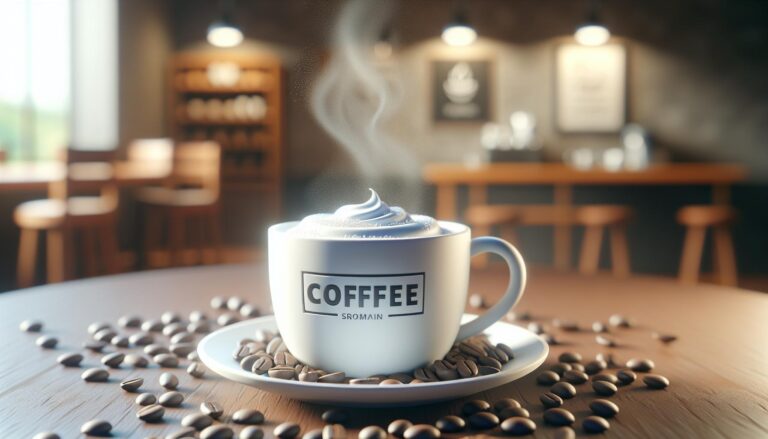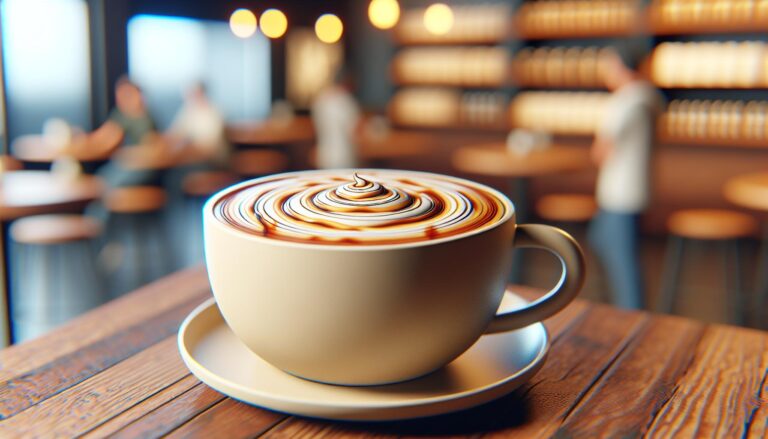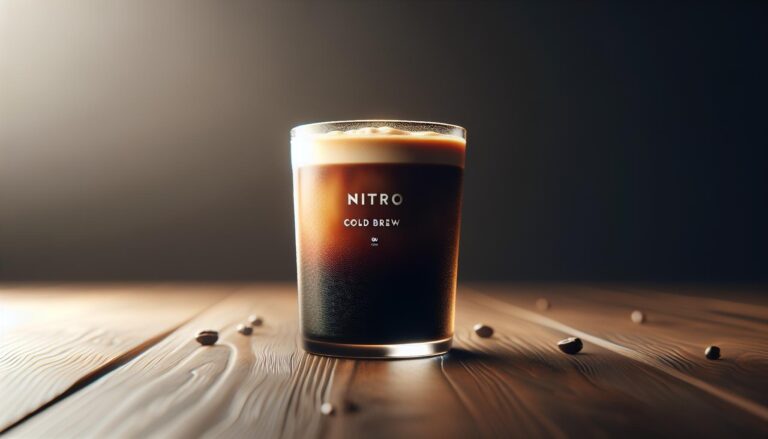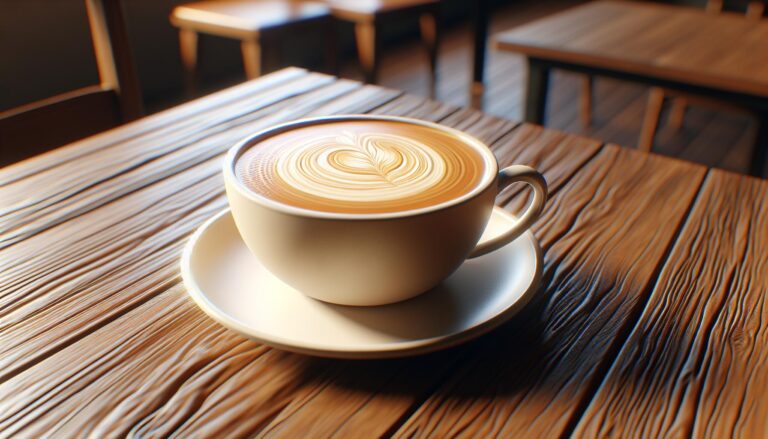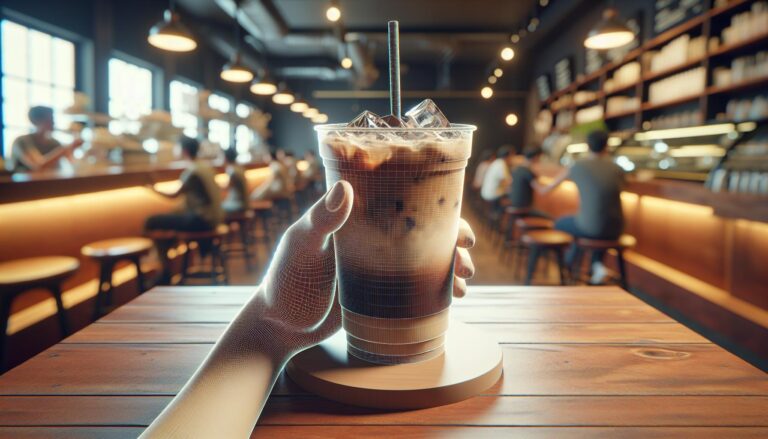Starbucks Reserve Coffee Caffeine Content: Find What’s in Your Cup!
Ever wondered how much caffeine is in your favorite Starbucks Reserve coffee? You’re not alone. As more people become caffeine-conscious, understanding the caffeine content in specialty brews like Starbucks Reserve is crucial for making informed choices.
Starbucks Reserve offers a unique coffee experience with premium beans and exclusive blends, but how does it stack up in terms of caffeine?
Whether you’re looking for a morning jolt or a smooth afternoon pick-me-up, knowing the caffeine content can help you choose the perfect cup.
Key Takeaways
- Premium Coffee Experience: Starbucks Reserve offers a unique and high-quality coffee experience with rare, small-lot beans and exclusive blends, providing distinctive flavors not found in regular offerings.
- Caffeine Content Variation: The caffeine content in Starbucks Reserve coffee varies depending on the type, ranging from 140 mg to 200 mg per 12 fl oz cup. Being aware of these variations helps in making informed choices.
- Factors Affecting Caffeine Levels: The caffeine content is influenced by bean type, roast level, and brewing method. Typically, Arabica beans have less caffeine than Robusta, and lighter roasts may have more caffeine than darker roasts.
- Health Implications: Moderate caffeine intake has benefits like improved mental focus and reduced risk of certain diseases, but excessive consumption can cause negative effects such as jitteriness and heart rate increase, especially for sensitive individuals.
- Daily Caffeine Intake: To maintain a balanced diet, it’s important to monitor your overall caffeine intake, keeping it under 400 mg per day for most adults, with lower limits recommended for sensitive individuals, pregnant women, and children.
Overview of Starbucks Reserve Coffee
Starbucks Reserve Coffee offers a premium experience with unique beans and exclusive blends. It’s essential to know more about it to understand its appeal fully.
What Is Starbucks Reserve Coffee?
Starbucks Reserve Coffee comes from rare, small-lot beans sourced globally. These beans undergo a meticulous process from hand-picking to artisanal roasting.
This careful attention results in distinctive flavors and profiles you can’t find in regular Starbucks offerings.
You get a carefully crafted brew that showcases the best of what these specialty beans offer.
- Single Origin Coffee: These beans come from one specific region, such as Ethiopia or Guatemala. They offer unique flavors reflecting their origin’s soil and climate. For example, Ethiopian beans might have fruity or floral notes.
- Blends: Starbucks Reserve also features signature blends that combine beans from different regions. These blends are skillfully balanced for nuanced flavors. An example is the Pantheon blend, which mixes beans for a smooth, layered taste.
- Micro-Lot Coffee: These are limited-edition batches from select farms. They provide an exclusive taste experience due to their limited availability. Each batch highlights unique flavor characteristics, like chocolatey or spicy notes, making it a rare find.
Caffeine Content in Starbucks Reserve Coffee
Starbucks Reserve offers a premium coffee experience with its exclusive blends and unique beans. Understanding the caffeine content helps you make informed choices about these specialty brews.
Comparing Caffeine Levels Across Starbucks Reserve Variants
Starbucks Reserve features different coffee variants, including Single Origin, signature Blends, and Micro-Lot Coffee. The caffeine content varies among these options.
For example, the Knights Templar Blend contains around 180 mg of caffeine per 12 fl oz cup, while the Guatemala Santa Clara Single Origin offers about 150 mg for the same serving size.
| Starbucks Reserve Variant | Caffeine Content (per 12 fl oz cup) |
|---|---|
| Knights Templar Blend | 180 mg |
| Guatemala Santa Clara Single Origin | 150 mg |
| Micro-Lot (varies) | 140-200 mg |
Factors Influencing Caffeine Content
Several factors affect the caffeine content in Starbucks Reserve Coffee. Bean type is crucial, as Arabica beans typically contain less caffeine than Robusta.
Roast level also plays a role, with lighter roasts often having slightly more caffeine than darker roasts, despite common myths suggesting the opposite.
Brewing methods can further influence caffeine content; a French press may extract more caffeine than a standard drip brew.
Considering these factors ensures you get the desired caffeine levels tailored to your preferences.
Also Read: Starbucks VIA Instant Coffee Caffeine Content
Health Implications of Caffeine in Coffee
Understanding the caffeine content in Starbucks Reserve Coffee helps you balance taste and health. Caffeine has both benefits and drawbacks depending on intake and individual tolerance.
Benefits of Caffeine in Moderate Amounts
Moderate caffeine intake offers several health benefits. Caffeine can boost energy levels, enhancing mental alertness and focus.
This stimulant helps improve physical performance by increasing adrenaline levels. Studies show that caffeine may reduce the risk of several diseases.
For example, moderate coffee consumption is linked to a lower risk of Parkinson’s disease and Alzheimer’s disease.
Additionally, caffeine has been found to have antioxidant properties, which help protect your cells from damage.
Considerations for Sensitive Individuals
For some people, caffeine can cause negative effects. Sensitivity to caffeine often results in symptoms such as jitteriness, increased heart rate, or insomnia.
Pregnant women, children, and people with certain medical conditions may need to limit caffeine intake. Excessive consumption can lead to dependencies and other health issues.
For these individuals, it’s crucial to be mindful of the caffeine content in their coffee choices and possibly opt for lower-caffeine options.
Also Read: Starbucks Nitro Cold Brew Caffeine Content
How Starbucks Reserve Fits Into Your Daily Caffeine Intake
When thinking about Starbucks Reserve and its caffeine content, it’s important to know how it fits into your overall caffeine consumption. Understanding this can help you make informed decisions and enjoy your coffee responsibly.
Estimating Your Daily Caffeine Intake
Knowing your daily caffeine intake is crucial. On average, a cup of Starbucks Reserve coffee contains about 180 mg of caffeine, although this can vary. For comparison, a typical 8 oz. cup of standard coffee has about 95 mg of caffeine.
Estimating Your Daily Caffeine Intake:
- Coffee: 8 oz. standard coffee (95 mg)
- Starbucks Reserve Coffee: 8 oz. (180 mg)
- Espresso: 1 shot (63 mg)
- Tea: 8 oz. black tea (47 mg)
- Soft Drinks: 12 oz. cola (34 mg)
Track each cup of coffee, a shot of espresso, and other caffeinated beverages throughout the day. This helps in understanding your overall intake.
Recommendations for Coffee Consumption
For moderate caffeine consumption, limit your intake to 400 mg per day. This equates to around two cups of Starbucks Reserve coffee or four cups of regular coffee.
- Moderate Consumption: Up to 400 mg/day (about 2 cups of Starbucks Reserve)
- Sensitive Individuals: Less than 200 mg/day
- Pregnant Women: Maximum 200 mg/day
- Children & Teens: Avoid coffee, and prefer lower-caffeine options like tea
Consuming the right amount of caffeine helps you reap the benefits without adverse effects. Balancing your daily intake with other dietary considerations ensures a healthy lifestyle.
Conclusion
Exploring Starbucks Reserve Coffee opens up a world of unique flavors and premium experiences.
By understanding the caffeine content in various blends and origins, you can make informed choices that fit your daily routine.
Remember to enjoy these exceptional coffees in moderation, keeping in mind the recommended caffeine intake guidelines.
Whether you’re a coffee connoisseur or just looking to enhance your daily brew, Starbucks Reserve offers something special for everyone.
So, savor each cup responsibly and enjoy the rich, diverse flavors that Starbucks Reserve has to offer.
Also Read: Starbucks Tea Latte Caffeine Content
Frequently Asked Questions
What makes Starbucks Reserve Coffee unique?
Starbucks Reserve Coffee stands out due to its premium nature, unique flavors, and global sourcing. It includes exclusive variants such as Single Origin, signature Blends, and Micro-Lot Coffee.
How much caffeine is in a cup of Starbucks Reserve Coffee?
On average, a cup of Starbucks Reserve Coffee contains about 180 mg of caffeine.
What are some examples of Starbucks Reserve Coffee variants?
Examples include the Knights Templar Blend and the Guatemala Santa Clara Single Origin.
How does Starbucks Reserve fit into my daily caffeine intake?
You can fit Starbucks Reserve into your daily intake by considering its average caffeine content (180 mg per cup) and limiting your consumption to 400 mg per day.
Is Starbucks Reserve Coffee safe for sensitive individuals?
Yes, but sensitive individuals should track their caffeine intake and may need to limit consumption to avoid adverse effects.
Can pregnant women drink Starbucks Reserve Coffee?
Pregnant women should consult with healthcare providers but generally limit caffeine intake to below 200 mg per day.
Should children drink Starbucks Reserve Coffee?
Children should avoid caffeine or consume it in very limited amounts under parental guidance.
Also Read:


